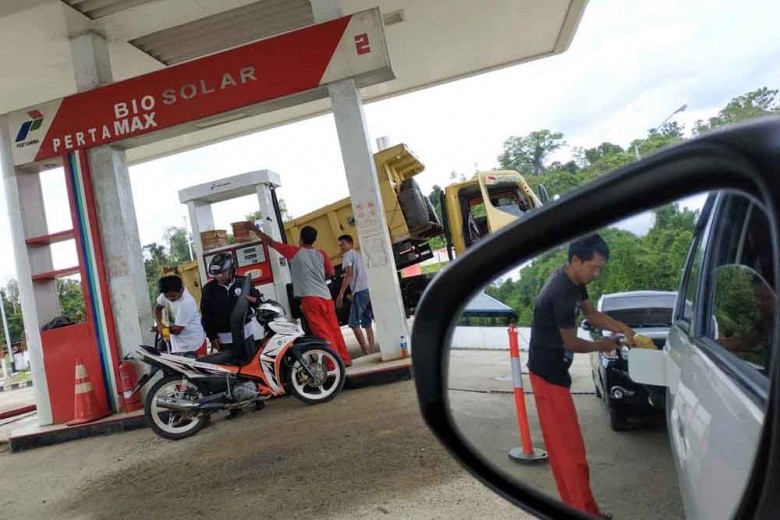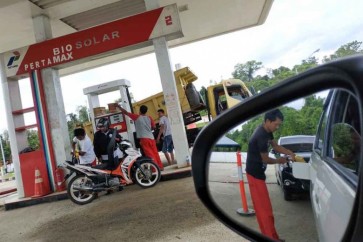Popular Reads
Top Results
Can't find what you're looking for?
View all search resultsPopular Reads
Top Results
Can't find what you're looking for?
View all search results2019, a transition year for bioenergy
Change text size
Gift Premium Articles
to Anyone
O
ut of five renewable energy sources being developed in Indonesia, bioenergy saw the most progress this year as Indonesia escalated a policy mandating the use of biofuel-blended diesel. Otherwise, renewable energy development and investments are poised to fall behind annual targets.
August marked Indonesia’s eleventh month of mandating the use of 20 percent blended biodiesel (B20). However, less than a year under in, President Joko “Jokowi” Widodo announced the government would begin mandating use of B30 starting in January next year.
“We need to respond to any pressure on crude palm oil [substance used in producing biofuel] by driving up domestic demand and so that we can have a good bargaining position, whether with the European Union or other parties that try to weaken our position,” Jokowi said.
In preparing businesses for the implementation of the B30 policy, the Energy and Mineral Resources Ministry kicked off in June a five-month experiment to test the biodiesel’s compatibility with market-available vehicles. In September, the ministry increased this year’s allocation for subsidized fatty acid methyl esters (FAME), a key biofuel ingredient, by 208,238 kiloliters.
Fuel consumption using biodiesel depends on the vehicle, but B30 is around 0.87 percent higher than B20, said the ministry’s research and development head, Dadan Kusdiana, in September, when the experiment neared completion.
“This does not mean it's more wasteful because the power is also higher and the performance is better,” Dadan added. “In terms of emissions, everything improved, except for nitrogen dioxide, depending on the vehicle type.”
In renewable power generation, Institute for Essential Services Reform (IESR) researcher Marlistya Citraningrum summarized this year as a period when solar energy saw the most progress even though the renewable energy sector declined overall.


















